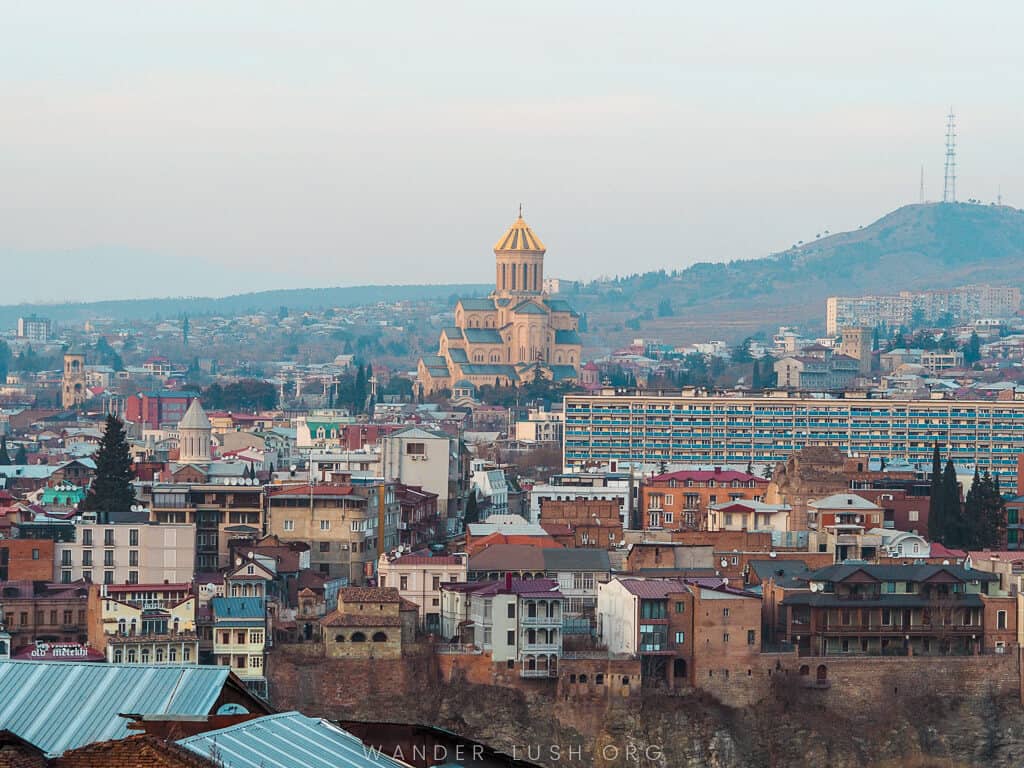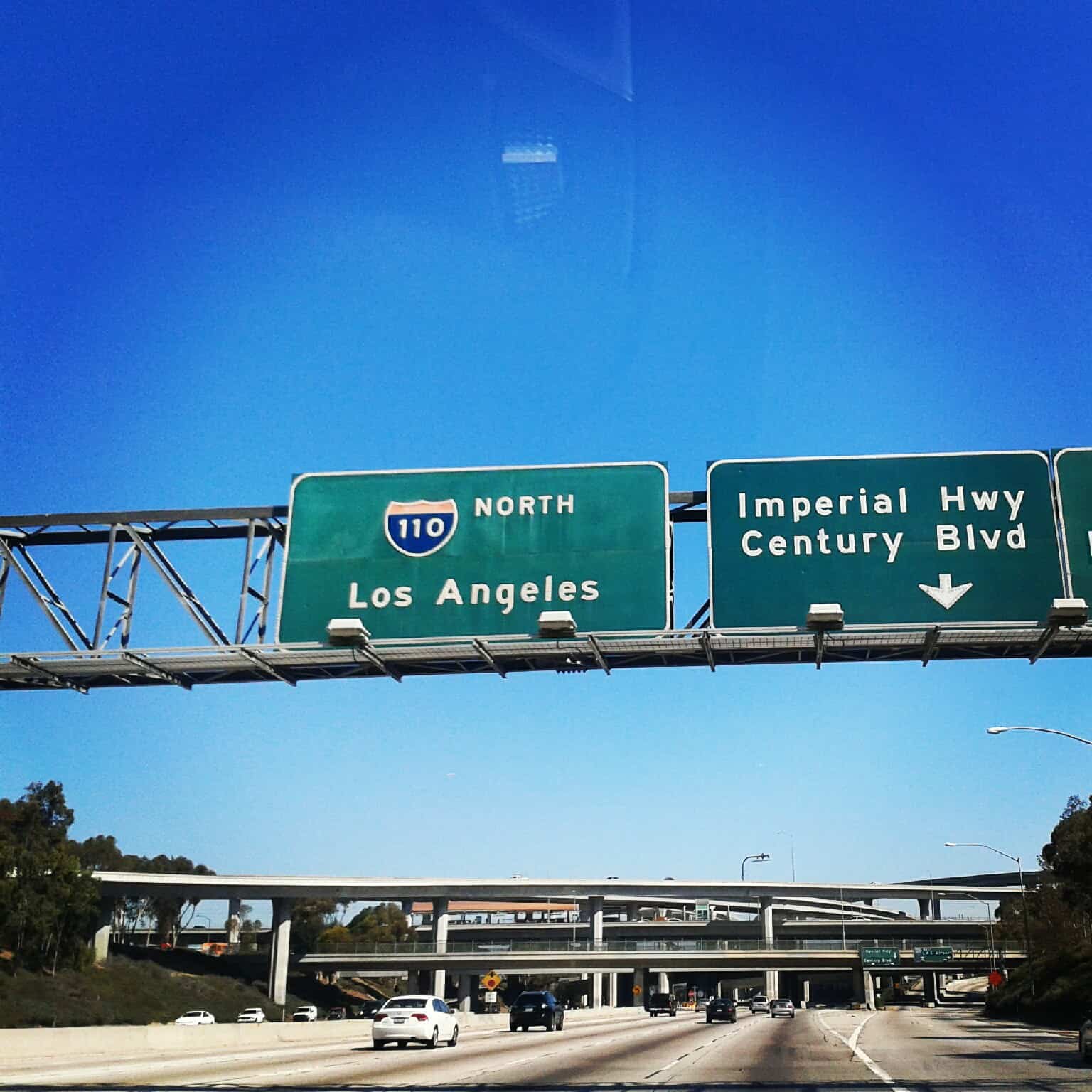Last Updated on January 5, 2021 by Jonathan Look
What Is It Like Living in Edinburgh?

Edinburgh is one of the loveliest cities to live in the UK. Its position as the capital of Scotland and its relatively small population make it a great place to live with decent costs, great food and vibe.
The city is full of museums, attractions, restaurants and beautiful green spaces to walk. Princess Street, the main shopping street in Edinburgh right in the heart of the city, is full of high street retailers, while the streets around it provide many dining options. The Royal Mile is full of historical elements (albeit it is the most touristy part of Edinburgh too), while Stockbridge and Dean Village are great areas to escape the bustle of the city. The universities around Edinburgh give a younger vibe to the city, as does the Fringe festival every August.
Edinburgh has two train stations, a bus station and an airport. Hence, it is very well connected to other cities in the UK and beyond. There are frequent train and bus connections to London, Glasgow and other cities and small towns. These connections are great for natural excursions and long walks by the beach such as in Portobello and Cramond.
See also:
- What Does it Cost to Live in Southhampton
- What Does it Cost to Live in Leeds
- What Does it Cost to Live in Cardiff
- What Does it Cost to Live in Dublin
Costs of living in Edinburgh
The costs of living in Edinburgh (and Scotland in general) are less compared to England, especially London.
Accommodation
Accommodation is the biggest expense of living in Edinburgh. The average cost for a furnished 1-bedroom rental apartment a long walk or a short bus ride away from the city centre is about £1000 per month. Of course, you could even go as low as £500 per month, or much higher depending on what you are looking for.
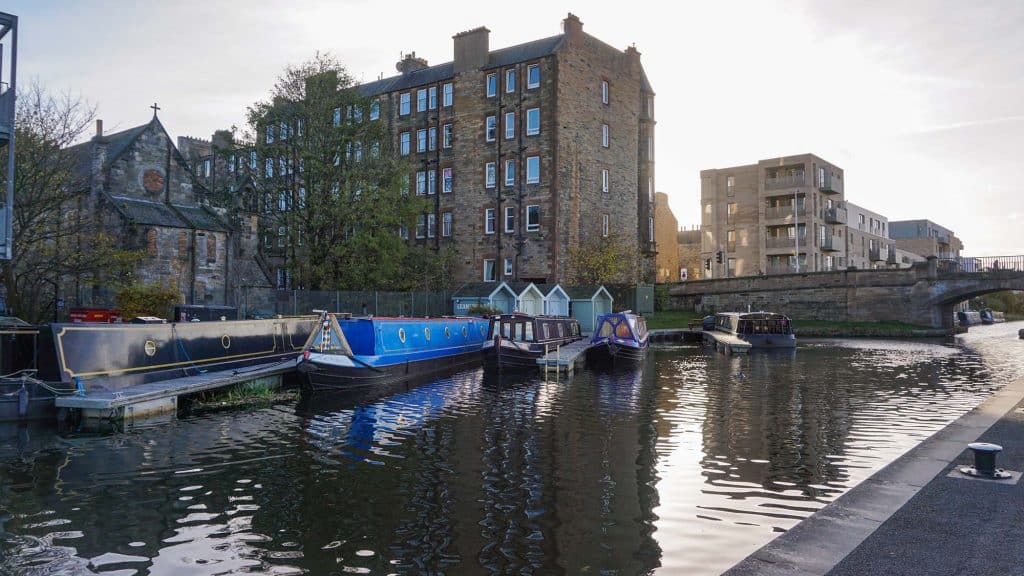
Utilities
Some accommodation options have some utility bills included in the monthly rent. However, most do not and there are several bills you need to pay separately when living in Edinburgh. Water (and sewerage), electricity, gas (sometimes), council tax and tv license are the most essential and come as the default when you move into a new property. Besides, you most probably would like to set up an internet connection (usually comes with landline) and a mobile phone subscription.
So, let’s break all these up, to get an average monthly cost for utilities.
Water, Sewerage and Council Tax
Water, sewerage and council tax come into one bill and should be paid to the council. The council tax is a general tax added by councils around the UK and includes services that are provided to households by the council, such as rubbish collections, police, schools and public libraries. The amount to be paid depends on the property value, its size, the area you live in and other factors. In Edinburgh, there are eight bands, from A to H with A being the lowest paying band and H the highest paying band. The costs between bands can vary dramatically, so you may also want to consider a property’s band when choosing a place to live.
The council tax (including water and sewerage) amount is calculated yearly, and you can schedule the number of payments you want to pay per year. A band charges come to around £100 per month, D band charges come to £150 per month, while H band charges can reach £350 per month. To calculate the total monthly costs, I will use the D band charge which is about the median value.
Electricity and Gas
For most people living in Edinburgh, electricity and gas come together in one bill. In older properties, gas is used for heating and sometimes cooking, but newer or recently renovated properties may replace gas heaters with electric ones, hence you may only need to pay electricity. Also, some properties, have dual meters (one for daytime usage and one for night-time usage) which provide a more expensive rate in the days and cheaper in the evenings (usually for 7 hours) than the standard rate.
In the UK, by default, each property has a set energy supplier based on the location charging the standard tariff. However, once you move into a new house/flat, you can change your energy provider to another supplier and choose a different tariff value. Typically, for a standard 1-bed property, the energy costs (either just electricity or both electricity and gas) come at about £75 per month.
TV License
In Edinburgh, as in the rest of the UK, all households should hold a valid TV license to be able to watch live TV in any device, not just TVs. A yearly TV license costs £157.50 per year, which come at around £13 per month. It is not required to pay for a TV license if you don’t need to watch live TV (e.g., you are only watching on-demand programmes) and you can choose that option when applying for a license.
Internet and Landline
Most broadband internet options in Edinburgh include a landline as well. Many broadband providers have promotions for new customers that allows them to pay only landline fees for one year and get the broadband cost for free. Usually, the lowest price is about £20 per month for the lowest download speed of at least 12Mbps. Note that you will need to pay extra if you make phone calls using the landline and usually it is more expensive if you don’t have a set plan agreed.
If you want higher internet speeds, you can choose to have a fibre connection if it’s supported in your area. Fibre connections do not require a landline and have cheaper rates considering the speed they offer compared to standard broadband values. For example, the cheapest fibre connections can cost around £30 per month for download speeds of around 75Mbps.
In addition, many internet providers offer packages with cable TV options for movies and sports for an extra charge.
Mobile Phone
Pay as you go subscription plans are very popular in the UK. You can pay for as little as £10 per month for a generous amount of (sometimes unlimited) minutes, texts and mobile data. There is no obligation to sign a contract or purchase a phone in this case, and you can amend your plan at any time based on your needs. Just remember to renew your plan every month (or set it to automatic), because it can be quite expensive to use mobile credit outside of a set plan.
Transportation
One of the joys of living in Edinburgh is the public transportation system. Edinburgh has an extensive network of buses and a tram line, connecting the airport to the city centre. Buses are frequent (usually there is one every 10-15 minutes) and are an easy way to go from one place in the city to another. A 4-week Ridacard costs £60 per adult and includes all public transport travel around Edinburg.
If you like walking, then you will be glad to see that Edinburgh is a very walkable city, although it has many hills and stairs, especially to and from the Royal Mile.
Biking is also possible, as there are many cycling routes around the city. Edinburgh is considered safe to bike in UK standards, but not as bike-friendly as other European cities.
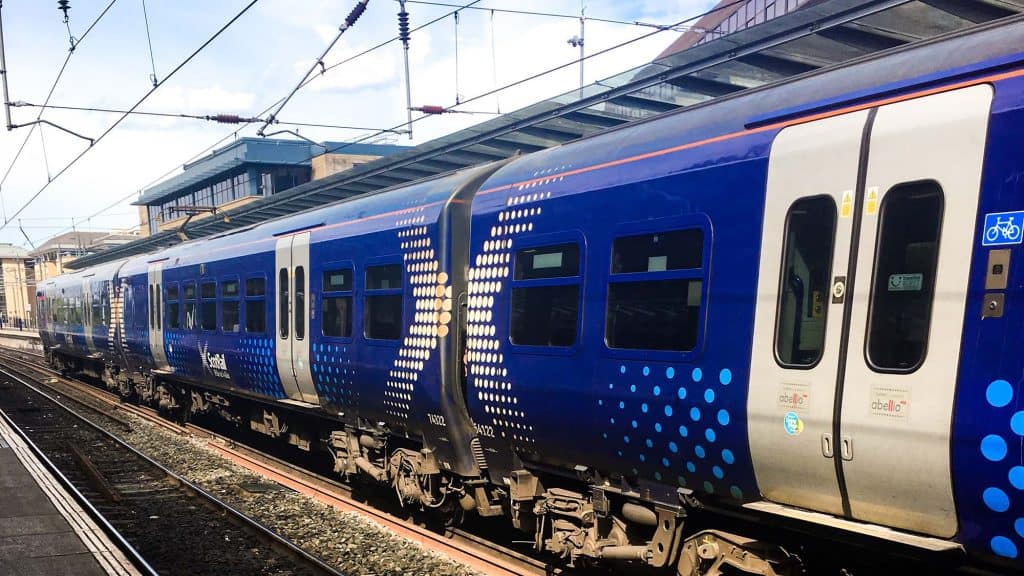
Train Travel
If you want to go on local trips from Edinburgh, the train is usually the best mean of transport. A same-day off-peak return ticket for Glasgow (less than an hour away) costs less than £15 per person, while tickets to smaller nearby towns cost even less. Longer distance journeys, such as to Inverness (3 hours and 15 minutes) costs about £55 for an off-peak return ticket within a month, while for London (at least 4 hours and 15 minutes) this can be the price for just a single ticket.
Note, that in general for longer train trips, it is better to book as early as possible to get cheap advance tickets, while for shorter trips when advance tickets are not an option, the price should be the same whenever you book. If you tend to travel often by train, you may want to check if you are eligible for purchasing a railcard which offers discounted rail tickets. A railcard usually costs £30 per year and offers up to a 1/3 off standard fares.
Food and Drink
The cost of food and drink in Edinburgh is similar to other cities in the UK. For a typical meal in a pub with a drink, you can end up paying £15-20 per person. For higher-end restaurants and even afternoon tea, the price can easily go higher. If you prefer something cheaper, try lunch and ready-made sandwiches served at cafes. Market food is also delicious and does not cost much. For £5-10 per person, you can try delicious food from a variety of cuisines. A popular one is Stockbridge market which is open every Sunday from 10 am to 4 pm.
Local groceries in Edinburgh are all over the place and have a good selection of basic items at decent prices. Although, you should keep in mind that local stores are usually a bit pricier than purchasing the same items from the equivalent larger store.
In total, you should budget for food and groceries around £300-500 per month depending on how often you tend to eat and drink outside.
Entertainment
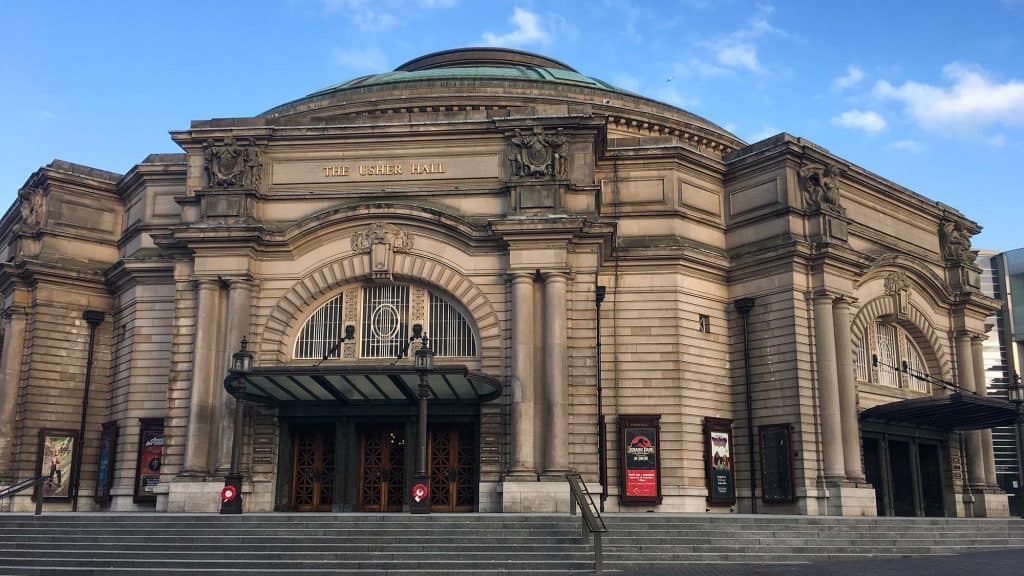
Entertainment wise Edinburgh has a lot to offer for people who live there. From museums to art galleries, to theatrical shows to West End musicals. Many museums and art galleries have free entry to their permanent collections, such as the National Museum of Scotland and the National Gallery of Scotland. For frequent visitors, these museums often have temporary exhibitions of varying topics. Usually, the tickets for those exhibitions tend to be £10-15 per person.
Other entertainment options include the tourist attractions in Royal Mile, such as the Edinburgh Castle, the Scots Whiskey Experience and Real Mary King’s Close, all starting from £17 per person.
Additionally, Edinburgh has a rich selection of theatrical and music shows. Home to the Fringe festival every August, a cultural blend of shows, performances, talks and more, Edinburgh provides an interesting art scene year-round. Tickets for shows usually start from £15 per person but, if you want to see a West End show touring the area, tickets can start from £45 per person.
Overall, assuming you do 1-2 entertainment activities per week, you should budget about £100 per person per month.
Tips About Living in Edinburgh
In general, living Edinburgh is great, with friendly people and a nice ambience. There is a variety of things to do at affordable prices and good connections to other cities.
The only disadvantage of living in Edinburgh is the continuous cold, windy, rainy and dark weather, especially during the winter. On the bright side, summer days are long with a few days of sunshine that allow people to fill in the parks and wear their summer clothing. Of course, like in many other places, the weather in Edinburgh can be unpredictable and you could see all four seasons in the same day. So, my advice is to be dressed in layers so that you can adapt accordingly.
Total Costs for Living in Edinburgh per Month
From the above, the monthly expenses for someone living in Edinburgh who shares accommodation and utility expenses with another person should be around £1250. Of course, this number should be treated with care as there are many factors and other expenses that can influence them that were not taken into account here, such as medical expenses and other personal costs.

About the Author
Elina is a travel enthusiastic based in the UK and has travelled to over 20 countries around the world. Elina runs Empnefsys & Travel, a travel blog dedicated to inspiring people to travel. On her blog, you can find detailed itineraries for cities in Europe and other travel-related content. You can follow her adventures on Instagram, Facebook, and Pinterest.


